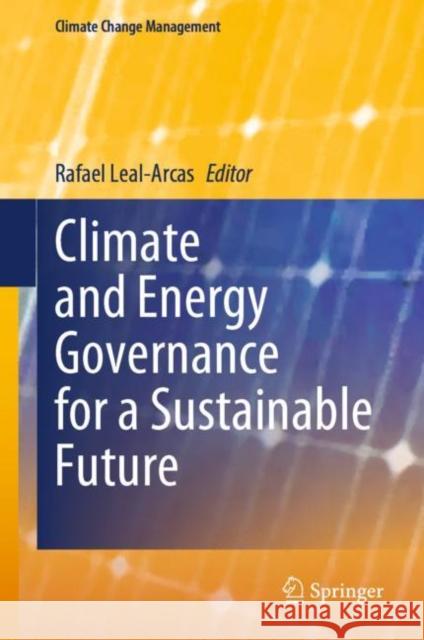Climate and Energy Governance for a Sustainable Future » książka
Climate and Energy Governance for a Sustainable Future
ISBN-13: 9789811983450 / Angielski / Twarda / 2023 / 284 str.
Climate and Energy Governance for a Sustainable Future
ISBN-13: 9789811983450 / Angielski / Twarda / 2023 / 284 str.
(netto: 537,98 VAT: 5%)
Najniższa cena z 30 dni: 539,74
ok. 16-18 dni roboczych.
Darmowa dostawa!
This book includes contributions by leading experts across the globe with the first part of the book focusing on the analysis of the Paris Agreement on Climate Change, examines COP26, and questions the political process in the US for the creation of policy for meaningful greenhouse gas emissions reductions. Part 2 explores various ways in which one can effectively mitigate climate change. The contents provide an analysis of carbon pricing, development of specific green energy technologies to promote economic prosperity, and analysis of electric vehicles and other elements of electrification in areas with carbon-intensive electricity supply. Part 3 analyses the international dimension of energy governance (both regional and global) and climate action. It further provides an analysis of the challenges faced by small island developing states, least-developed countries and other vulnerable places. It also offers an analysis of the prospects for a European Energy Union and explores why energy security and decarbonization are significant. Lastly, it explores global energy governance and how its fragmentation can be reduced. This volume will be a useful reference for those in industry and academia.
This book includes contributions by leading experts across the globe with the first part of the book focusing on the analysis of the Paris Agreement on Climate Change, examines COP26, and questions the political process in the US for the creation of policy for meaningful greenhouse gas emissions reductions. Part 2 explores various ways in which one can effectively mitigate climate change. The contents provide an analysis of carbon pricing, development of specific green energy technologies to promote economic prosperity, and analysis of electric vehicles and other elements of electrification in areas with carbon-intensive electricity supply. Part 3 analyses the international dimension of energy governance (both regional and global) and climate action. It further provides an analysis of the challenges faced by small island developing states, least-developed countries and other vulnerable places. It also offers an analysis of the prospects for a European Energy Union and explores why energy security and decarbonization are significant. Lastly, it explores global energy governance and how its fragmentation can be reduced. This volume will be a useful reference for those in industry and academia.











